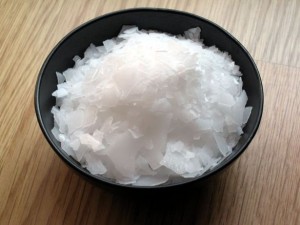Kali mur, also known as kalium chloratum, kali muriaticum, or potassium chloride, is naturally found in the mineral sylvine.
Contents
Uses
- It is used to treat a wide range of ailments, most commonly chronic congestion. In addition, it is often used by homeopathic medicine practitioners to treat earaches, blockage of the Eustachian tube, and tonsillitis.
Benefits
One of the most popular uses of kali mur is in the treatment of congestion. Homeopathic medicine practitioners believe that congestion is broken down into three stages. Kali mur is usually recommended during the second stage of nasal and chest congestion, when the mucosal discharge is white or gray in color, instead of clear or green in color.
There are other common uses for kali mur, as well. For example, it is often recommended for middle ear infections. In addition, if the Eustachian tube that connects the back of the nose to the middle ear becomes blocked or infected, it may also prove helpful. This is particularly true if there are heavy, white secretions in the Eustachian tubes. In some cases, if the secretions are especially heavy and the tube becomes fully blocked, deafness may result temporarily. Kali mur may help relieve the symptoms to reduce the duration of the deafness.
If someone is suffering from a severe sore throat or tonsillitis, kali mur may be recommended as well. Many homeopathic medicine practitioners will view the back of the throat. A thick white coating on the tonsils is one of the telltale signs that some practitioners look for to determine if the mineral is needed.
Cautions
- There are some side effects that may occur from taking kali mur tablets. For example, if the stool turns black, it may be a sign of bleeding in the stomach or intestines; there also have been reports of extreme nausea and vomiting. The product also can raise levels of potassium chloride in the body, which can also raise the levels of potassium in the blood. High potassium levels can lead to problems with heart rhythms and confusion. For example, there have been reports of people refusing to eat while using the product.
As with any medical product, a professional should be consulted before using kali mur. It should not generally be used by people with ulcers or irritated stomachs. In addition, people using potassium-sparing diuretics should not use the product.
Interactions
- None are recorded.
Other names
Kali mur, also known as kalium chloratum, kali muriaticum, or potassium chloride
References
Source: WiseGeek, http://www.wisegeek.com/what-is-kali-mur.htm

